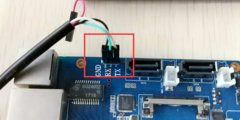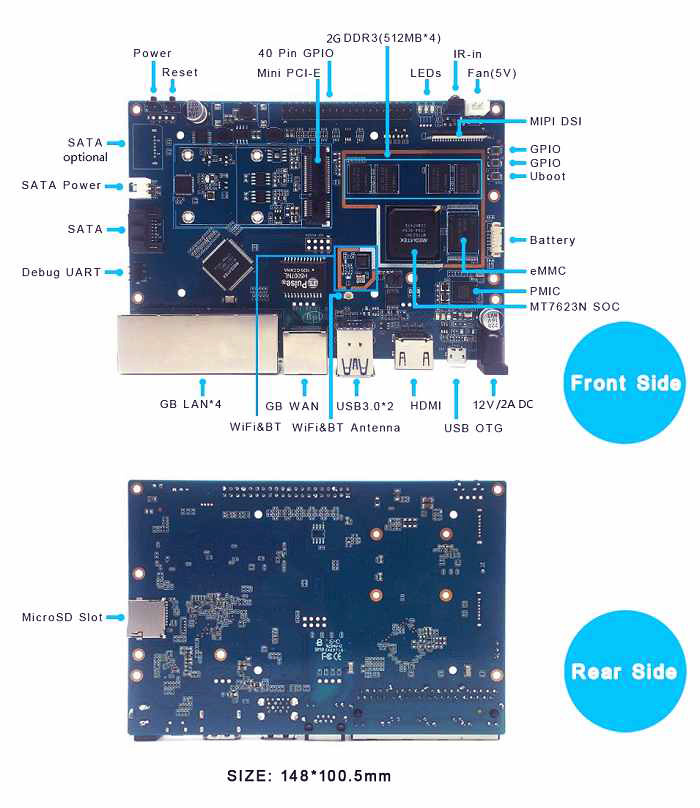Difference between revisions of "Getting Started with R2"
JackZengWiki (talk | contribs) (→Prepare to develop) |
JackZengWiki (talk | contribs) (→Prepare to develop) |
||
| Line 19: | Line 19: | ||
==Basic Development== | ==Basic Development== | ||
===Prepare to develop=== | ===Prepare to develop=== | ||
| − | 1.Using your USB-Serial Connect debug console on R2 | + | 1.Prepare 16G/above TF card, USB-Serial interface |
| + | |||
| + | 2.Using your USB-Serial Connect debug console on R2 | ||
[[Image:R2_debug_console.png|240px]] | [[Image:R2_debug_console.png|240px]] | ||
Revision as of 01:46, 5 May 2018
Contents
Introduction
The Banana Pi R2 is a router based development board, which can run on a variety of open source operating systems including OpenWrt, Android, and Bananian. It has 4 Gigabit LAN ports, 1 Gigabit WAN, and 300Mbs wireless N capabilities.
Key Features
- MediaTek MT7623N, Quad-core ARM Cortex-A7
- Mali 450 MP4 GPU
- 2G DDR3 SDRAM
- Mini PCIE interface
- SATA interface
- 4x Gigabit LAN 1x Gigabit WAN
Hardware
Development
Let's get start to develop on BPI-R2, see amazing things happen.
Basic Development
Prepare to develop
1.Prepare 16G/above TF card, USB-Serial interface
2.Using your USB-Serial Connect debug console on R2

